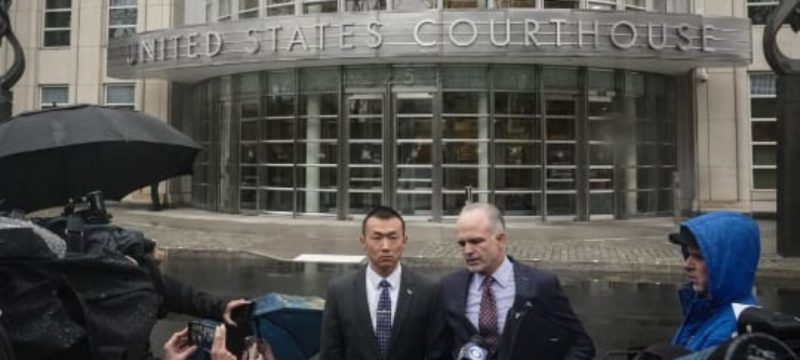British prosecutors announced on Monday that they are dropping charges against two men who had been accused of spying for China. The decision comes after months of legal proceedings and strong public attention.
One of the men was a former researcher for a senior British lawmaker. He had been accused of gathering sensitive information for the Chinese government. The second man was also facing similar allegations of working on behalf of Beijing. Both had denied the accusations since the start of the case.
The Crown Prosecution Service (CPS) confirmed that the charges will no longer move forward. Officials said there was not enough evidence to continue the case in court. According to prosecutors, the decision was made after reviewing all available material. They concluded that the case did not meet the legal test for prosecution.
The men were originally charged under the Official Secrets Act. This law makes it a crime to share or obtain information that could harm national security. At the time of the charges, authorities said the men had been in contact with Chinese officials. British police had investigated them for months before making arrests.
The accusations caused political concern, especially in Parliament. The former researcher had previously worked closely with a senior Member of Parliament who dealt with foreign policy issues. His arrest raised fears about possible Chinese influence within British politics. Some lawmakers had called for tighter security rules after the case first became public.
China strongly denied the allegations when the charges were first announced. Officials in Beijing said the claims were false and politically motivated. They accused Britain of spreading unfounded rumors and trying to damage relations between the two countries.
The decision to drop the case is likely to reduce some of the immediate tension, but questions remain. British intelligence agencies have warned repeatedly about the risks of foreign interference. China has often been mentioned as one of the countries most active in seeking political and economic influence in the United Kingdom.
The CPS stressed that dropping the charges does not mean the concerns were baseless. Instead, they explained that prosecutors must follow strict legal standards. Without enough evidence to convince a jury, the case could not continue. Officials added that protecting national security remains a top priority.
Lawyers for the accused men welcomed the decision. They said their clients had suffered serious damage to their reputations because of the allegations. Both men insisted they had never acted for China or any other foreign power. They also said they hoped to rebuild their lives after months of intense media coverage.
The case had drawn wide attention because it highlighted growing mistrust between London and Beijing. Relations between the two governments have been strained in recent years. Disagreements have included issues over Hong Kong, human rights, and the role of Chinese technology companies in Britain.
British security agencies have also warned about cyber espionage. Officials say foreign actors have tried to access sensitive information about defense, trade, and research. China has repeatedly rejected such claims. Despite this, Western governments continue to treat Beijing as a major intelligence concern.
Observers say the dropped charges do not end the debate. Lawmakers are still calling for better protection against foreign interference. Some argue that Parliament and government offices need stronger security checks. Others believe Britain must balance security concerns with maintaining open political and academic exchanges.
The case also shows the challenges prosecutors face in handling espionage allegations. Much of the evidence often involves classified material that cannot be made public in court. This makes it harder to secure convictions, even when security agencies have strong suspicions.
For now, both men are free from charges. The CPS emphasized that the legal process had been followed carefully. While some in government may feel frustrated, the decision underlines the importance of evidence in the justice system.
The story of alleged Chinese spying in Britain is unlikely to fade soon. It reflects wider global tensions as countries grow more cautious about foreign influence. For many observers, the case serves as a reminder that national security, politics, and diplomacy are increasingly linked.
For more on global media rights and the full findings, read the latest news on :Students protest PM Modi in Manipur







